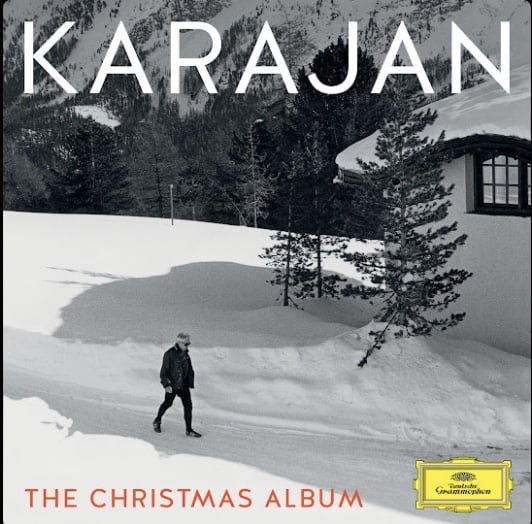Whygold’s Weekend
Karajan – The Christmas Album

… … under this motto I present you my music tip for the weekend.
Maybe one or the other will discover something new.
Listening to music consciously is in my opinion as important as reading a good book.
Today: Karajan – The Christmas Album
https://music.youtube.com/playlist?list=OLAK5uy_kJYsypZ_ZggkRu3lVcw5cEnIc-64IaivM
Herbert von Karajan (* April 5, 1908 in Salzburg;[1] † July 16, 1989 in Anif, Salzburg; born Heribert Ritter von Karajan, in Austria from 1919 officially Heribert Karajan)[2] was an Austrian conductor. As such, he ranks among the best known and most important of the 20th century. Karajan worked with many prestigious symphony orchestras, performed at major opera houses, and released numerous recordings of classical music. From 1939 to 1945 he was Staatskapellmeister in the Nazi state, and from 1954 to 1989 he served as chief conductor of the Berlin Philharmonic.
Herbert von Karajan came from the von Karajan family – a family originally of Greek origin from the province of Macedonia (then part of the Ottoman Empire under the name of Rumelia) in northern Greece named Karagiannis (or Karaioannes), first documented in Kozani in 1743. [He was the great-great-grandson of the merchant Georg Karajan, actually Geórgios Ioánnes Karagiánnis, the owner of a cotton store in Chemnitz in Electoral Saxony, and great-grandson of Theodor von Karajan. Georg Karajan, his wife and his sons Dimitrios and Theodor were raised to hereditary imperial nobility by the Saxon Elector Friedrich August III on June 1, 1792 during the imperial vicariate. The recognition of this noble status in Austria took place for his widow and sons by decree of January 4, 1832. Theodor von Karajan was awarded the Knight’s Cross of the Order of Leopold by supreme resolution of May 27, 1869, by Emperor Franz Joseph I in Vienna,[5] and on the basis of the order’s statutes was elevated to hereditary Austrian knighthood as “Knight von Karajan” in September 1869.[6] Herbert von Karajan’s father Ernst von Karajan was awarded the Knight’s Cross of the Order of Leopold in September 1869.
Herbert von Karajan’s father Ernst von Karajan was a surgeon in Salzburg. His mother Marta Kosmač came from a Slovenian family; her father Mihael Kosmač was born in Mojstrana (today a district of Kranjska Gora, German: Kronau).[7] Herbert had a brother Wolfgang, two years older. The abolition of nobility in 1919 also affected the (Austrian) von Karajan family, whose surname became Karajan without a preceding “von”. For his part, the artist Karajan had threatened not to perform in Austria if his former “von” was not allowed to appear on the announcement posters. As a result, he was granted Herbert von Karajan as his stage name.
Karajan’s style of music-making was mostly (except for his early days at EMI) academic, without great ventures; he did, however, attach the greatest importance to sound. His ideal was a “dematerialized,” smoothed, “streamlined” sound that avoided all physicality and attack noise in tone formation. This produced impressive results in tonally sensual works such as those of Impressionism or even Jean Sibelius. According to Sibelius’s daughter, her father considered Karajan to be the conductor of his generation who had the greatest empathy for Sibelius’s music.[30] With respect to this repertoire, Karajan, along with Leopold Stokowski, is considered one of the greatest “sound magicians” of all. In the classical-romantic repertoire, on the other hand, his sound ideal has often been criticized as superficially polished. His Bruckner and Mahler recordings are not without controversy. Igor Stravinsky publicly doubted that “the Sacre can be performed satisfactorily in the traditions of Herr von Karajan.”[31] His last recording was Bruckner’s 7th Symphony with the Vienna Philharmonic, also a live recording of his last public appearance at the Vienna Musikvereinssaal on April 23, 1989.
(Source: Wikipedia)
A beautiful Christmas album with Herbert von Karajan.
Maybe you will allow yourself the 69 minutes this Christmas and listen to this recording in one piece.
Always in spirit “Happy holidays !”
Enjoy the recording !
Your Chris Weigold
P.S.: Maybe you enjoy the listening pleasure together with a glass of wine from our “Orchestra of Cultures Edition”.
